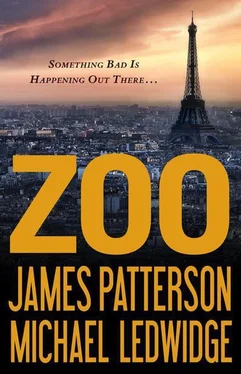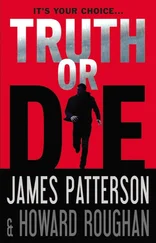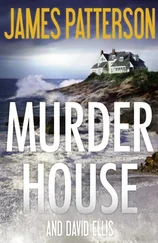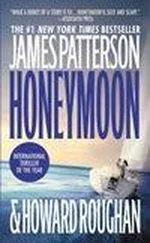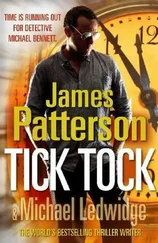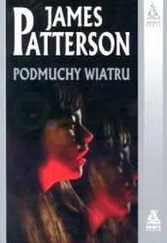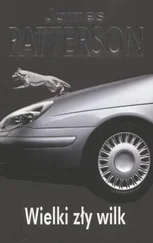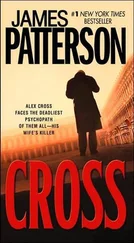Then the itch comes back.
Huffing, panting, yowling, he leaps from the sink into the hallway, hurling and smashing everything he can reach. He goes into the room with the computers and smashes them all. He rips them from the wall, yanking out their electrical cords, and tosses them into each other. Sparks crackle and fizz, bits of machinery fly about the room like handfuls of flung sand.
Soon he hears a noise: a repeated thumping on the wall near the door.
“SHUT THE FUCK UP IN THERE!” comes the muffled voice of a person. Next-door neighbor. “You stop that shit right now or I’m calling the cops!”
Attila screams back as he rushes over to the wall and begins pounding it as hard as he can. Plaster particulates rise in the air like white smoke as the mirror on the wall jumps once, twice, then breaks free of its moorings and crashes to the floor near his feet. Glass scatters across the hallway.
When he sniffs again, he catches a new scent emanating from the adjacent apartment.
Attila pant-hoots and shrieks as he scampers through the ruined room.
There is one human smell he enjoys, and he can smell it now.
The scent of human fear.
THE HAC MEETING was still in full swing that afternoon when an e-mail popped up on my iPhone from Elena Wernert, Senator Gardner’s senior staffer.
The senator couldn’t meet with me today, she informed me, and my heart sank like a stone before I read the bit that followed: if I was interested, she could “squeeze me in” for five minutes at a conservation hearing that the Senate Committee on Environment and Public Works was holding tomorrow at ten.
I thought: a congressional hearing— booyah . That was better than a meeting with the senator. I couldn’t have rubbed on a bottle and asked a genie for a better way to get the word out.
So: was I interested?
Absolutely interested, I wrote back, tapping letters on the phone’s glowing screen under the table.
As the meeting wore on toward evening, something strange happened. More people kept arriving, prominent geneticists, biologists, people whose names I’d known for years but whom I had never met. I did a double take when Jonathan Eley walked in—a popular astronomer who hosted a New Agey PBS series on the origins of the universe.
They all wanted to see the lion attack footage, which by then had been set up to run continuously in a cordoned-off section of the meeting room.
The Botswana zoological anomaly, as many were starting to call it, was attracting scientists like moths to a flame.
This whole thing was on a new level now, I realized. The buzz on this was intense. Also, in a strange way, I’d won a kind of respect that I’d never really had before: as the meeting gradually segued from the ballroom to the hotel bar, well-known scientists from top-shelf institutions—Harvard, MIT, Johns Hopkins—who normally wouldn’t have given me the time of day shuffled over to shake my hand or offer to buy me a beer.
As the attaboys accumulated, I took five from worrying about the end of the world to allow myself a golden moment of self-congratulation. Even after people had called me crazy, I’d stuck to my guns with HAC, and now I felt vindicated.
“Well, aren’t you quite the celebrity?” Chloe said, picking at the shoulder of my sport coat after I’d said good-bye to a frosty-haired Princeton microbiologist. My hand was pink and hot from handshakes.
“Yep,” I said. “Ladies and gentlemen, Jackson Oz, rock-and-roll biologist. No autographs, and easy on the flash photography.”
After the meeting broke up in the early evening, Chloe and I went upstairs to her hotel suite to prepare for the Senate hearing. Sharing a pot of coffee, we cranked out a five-minute statement to the committee that emphasized the dire nature of the problem. I gave several specific policy suggestions, such as broadcasting warnings to every local department of animal care and control to be on alert for increased aggression. But the most important request was for funding to research the problem. We needed to get the best people we could, as fast as possible.
After rereading it, Chloe collapsed in a chair and nodded her head.
“This is good, Oz. With the tape, it should cause quite a stir. We’ve already grabbed the attention of scientists. Now we’re going to tell the world.”
We called room service and had the coffee exchanged for a late dinner. Skate wing with capers and cauliflower farro and a bottle of Vouvray (Chloe’s suggestion). It was delicious.
She was oddly quiet as we ate. She swirled her wine and gazed distractedly through the window. Outside in the bluish, luminous dark, the Frederick Douglass Bridge, lit up like a birthday cake, spanned the Anacostia River.
When Chloe finally looked at me, her brown eyes were glistening with moisture.
“Back in Africa,” she began, her voice quiet, “when night fell, I had resigned myself to my death. I started praying to my grandfather, saying that if I had to die, that maybe he could help somehow. That it would be quick. The next day, I was about to give up hope. Then I looked up, and you were there.”
“And now we’re here,” I said, raising my glass.
“Exactly,” she said. “I never believed in fate before, but now I don’t know. One moment, I’m about to die in Africa, and the next, I’m in America. And in the middle of a storm. Something that might be one of the biggest events in history. This doesn’t often happen to a girl from Auvergne. It doesn’t seem real.”
“It is real,” I said. “You want me to pinch you to prove it?”
That’s when she leaned across the tiny table and touched my face.
“No,” she said. “I want you to kiss me.”
I leaned toward her from across the table and we kissed for the first time. It was soft and right. Then the image of Natalie floated across my eyelids, and though it was the last thing on earth I wanted to do, I broke it off.
“No?” Chloe said surprised. “I thought—”
“I should have told you. I’m sort of, uh—”
“You’re married.”
“God, no.”
“Petite amie? Une amante?”
“No, no. I mean, it’s, uh…it’s hard to say. I think I just broke up with someone,” I said, avoiding her eyes.
Chloe harrumphed. “You think? ”
“Yeah.”
Chloe lifted her glass, took a sip of wine. “Well, I appreciate your honesty, Mr. Truth and Justice,” she said.
“I guess I should go back to my room,” I said. I wadded my napkin on my plate and stood. “We have a big day tomorrow.”
“Are you completely crazy? You are here now,” she said. Then she sipped more wine and added: “Besides, I’ve already seen your underwear.”
I gave her a look.
“No, I’m serious, Oz. I don’t want to be alone tonight. Please stay?”
“I’ll sleep on the chair.”
She rolled her eyes.
“Sleep in the bed, with me,” she said over the rim of her glass. “Don’t worry. Just sleep.”
It turned out she wasn’t kidding about the just sleeping part. She was sawing logs by the time I came out from my shower.
I watched her in the dim light from the window—her dark eyelashes, her pale face, her thin, delicate arms. Lying there, she looked lovely, so girlish and birdlike. I was already kicking myself. What were you thinking? Natalie broke up with you. It’s done. You’re a free agent now. Go for it.
Chloe had come all this way for me, I realized. She trusted me and believed in me, which Natalie never really did.
After I tucked her under the covers, I lay beside her and looked at the ceiling.
“Good night, you dumbass,” I said to myself, and shut my eyes.
Читать дальше
